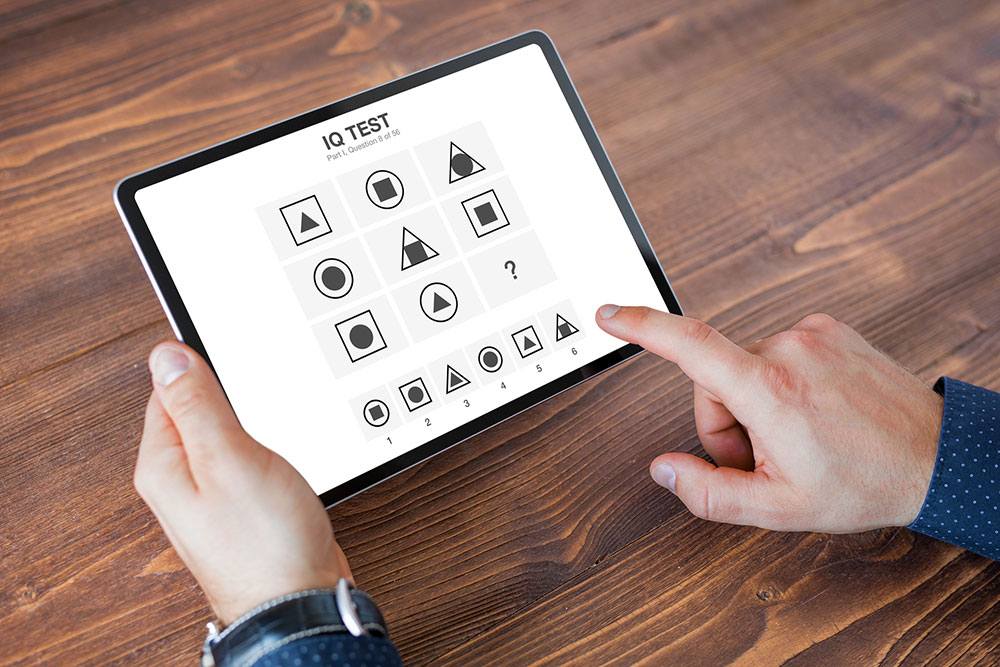The origins of human intelligence have puzzled scientists and philosophers for centuries. This complex trait, encompassing our ability to learn, reason, and comprehend, is crucial in shaping individual success and societal advancement. Understanding the relative contributions of genetics and environment to intelligence has profound implications for education, policy-making, and our perception of human potential.
Genetic Influence on Intelligence
Research has consistently shown that intelligence is one of humans’ most heritable behavioural traits. Heritability estimates for intelligence follow a distinctive pattern, increasing from roughly 20% in infancy to 80% in adulthood. This trend indicates that while environmental factors significantly impact early cognitive development, genetic influences become more prominent with age.
Several factors may explain the increasing heritability of intelligence over time. Individuals gain more autonomy in shaping their environments to align with their genetic predispositions as they mature. The cumulative effects of minor genetic influences may also become more apparent as time progresses.
Recent advancements in genetic research, particularly Genome-Wide Association Studies (GWAS), have shed light on specific genetic variants associated with intelligence. These studies have identified numerous genetic loci that account for approximately 20% of intelligence heritability. This progress highlights the “missing heritability” concept – the gap between the high overall heritability of intelligence and the fraction explained by currently identified genetic variants.
Researchers continue to investigate the missing heritability, exploring possibilities such as rare genetic variants with significant effects, complex interactions between multiple genes, and epigenetic factors influencing gene expression without altering DNA sequences.
Mechanisms of Genetic Influence
Genetic influence on intelligence operates through several mechanisms. Assortative mating, where individuals tend to choose partners with similar traits, shapes the genetic landscape of intelligence. Studies have revealed higher spouse correlations for intelligence compared to many other characteristics. This tendency for intelligent individuals to pair up and reproduce can increase the genetic variance for intelligence in populations over generations.
Recent research has uncovered intriguing aspects of genetic influence on intelligence, including the potential role of conditioned genes. Some studies suggest that specific genes associated with advanced cognitive functions may only be activated when inherited from the mother. This finding underscores the intricate nature of genetic inheritance and highlights the potential significance of maternal genetic contributions to intelligence.
Environmental Factors
While genetic factors substantially influence intelligence, environmental influences are critical, especially in early life. Environmental factors are estimated to account for about 50% of the differences in intelligence among individuals during childhood and adolescence.
These environmental influences include education quality, nutrition, socioeconomic status, and early childhood experiences. The availability and quality of educational opportunities can significantly impact cognitive development and intellectual achievement. Adequate food, particularly during early childhood, is essential for optimal brain development and cognitive function.
The influence of the environment on intelligence is particularly evident in the impact of maternal care and support. Emotional solid bonds and intellectual stimulation mothers provide have been shown to affect a child’s cognitive development significantly. This maternal influence operates through genetic and environmental pathways, highlighting the complex interplay between nature and nurture.
Interaction Between Genes and Environment
The dynamic interaction between genetic predispositions and environmental factors is perhaps the most fascinating aspect of intelligence inheritance. This interplay is exemplified by gene-environment correlations, where individuals with specific genetic propensities seek out or create environments that match and reinforce those tendencies.
For example, a child with a genetic inclination towards verbal ability might show more interest in reading, prompting parents and teachers to provide additional opportunities for language development. Over time, this process can amplify the effects of genetic predispositions, contributing to the increasing heritability of intelligence with age.
The malleability of intelligence in response to environmental factors opens up possibilities for interventions. Various programs and strategies, such as early childhood education initiatives, cognitive training, and nutritional supplementation, have shown promise in enhancing cognitive abilities, particularly in children from disadvantaged backgrounds.
Expanding our Understanding
As research in this field progresses, we will likely gain even deeper insights into the genetic and environmental factors contributing to intelligence. These advances open new possibilities for personalized education and interventions to optimize cognitive development.
Future research directions may include:
- Epigenetic studies: Investigating how environmental factors influence gene expression without altering DNA sequences, potentially explaining some of the missing heritability.
- Longitudinal studies: Tracking individuals from early childhood through adulthood to better understand how genetic and environmental factors interact over time to shape intelligence.
- Cross-cultural comparisons: Examining how genetic and environmental influences on intelligence may vary across different cultures and societies.
- Neuroimaging studies: Using advanced brain imaging techniques to explore the neural correlates of intelligence and how they relate to genetic and environmental factors.
- Gene-environment interaction studies: Investigating how specific genetic variants may respond differently to various environmental influences.
- Developmental trajectory analysis: This study examines how the relative contributions of genetic and environmental factors change throughout different stages of life.
- Intervention studies: Developing and testing targeted interventions based on genetic and environmental risk factors to enhance cognitive development.
- Twin and adoption studies: Using these robust research designs to disentangle genetic and environmental influences on intelligence.
- Molecular genetic studies: Identifying additional genetic variants associated with intelligence and exploring their functional roles in cognitive processes.
- Computational modelling: Developing sophisticated models to simulate the complex interactions between genes and environment in shaping intelligence.
Ethical Considerations
As we uncover more about the genetic basis of intelligence, it is crucial to approach these findings with care and consideration. The ethical implications of genetic research on intelligence are profound and require thoughtful discussion to ensure that this knowledge is used responsibly and equitably.
Some vital ethical considerations include:
- Avoiding genetic determinism: Recognizing that genetic influences do not predestine individuals to specific levels of intelligence.
- Preventing discrimination: Ensuring that genetic information related to intelligence is not used to discriminate against individuals in education, employment, or other areas of life.
- Addressing inequalities: Using our understanding of genetic and environmental influences to develop strategies that reduce disparities in cognitive development and educational outcomes.
- Respecting individual privacy: Safeguarding genetic information and ensuring individuals control how their genetic data is used and shared.
- Promoting equity in research: Ensuring that genetic studies of intelligence include diverse populations to avoid biases and improve the generalizability of findings.
- Fostering public understanding: Educating the public about the complex nature of intelligence inheritance to prevent misinterpretation and misuse of genetic information.
- Considering societal implications: Reflecting on how advances in our understanding of intelligence inheritance might impact social policies, educational practices, and cultural values.
In conclusion, while a significant portion of our intelligence is indeed inherited, the story of human cognitive ability is an ongoing interaction between our genetic heritage and our lived experiences. This understanding enriches our scientific knowledge and empowers us to create environments and opportunities that allow all individuals to reach their full cognitive potential.
















